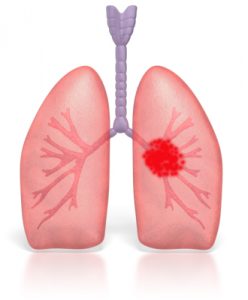28th October 2018, Dr Chee L Khoo
Most of you would have read about the recent study linking angiotensin converting enzymes inhibitors (ACEI) to the risk of lung cancer. This was published in the BMJ last week. it was a bit of a surprise to some extent although once the dust settled, it wasn’t that surprising after all. ACEI causes a build-up of bradykinin in the lungs and bradykinin has been reported to stimulate growth of lung cancers. ACEI also results in an increase in substance P and that has been linked to tumour proliferation and angiogenesis. Suddenly, there may be some substance to the study after all. We better read more.
ACEIs are pretty much the back bone of our anti-hypertensive therapies. It blocks the conversion of Angiotensin I (ATI) to Angiotensin II (ATII). Reduction of ATII lower arteriolar resistance and increase venous capacity; decrease cardiac output, cardiac index, stroke work, and volume. It also lowers resistance in blood vessels in the kidneys and lead to increased natriuresis. Unfortunately, reduction in activation of ATII leads to increase in bradykinin which is thought to be the cause of our dry ACEI cough, angioedema and rash.
The UK Clinical Practice Research Datalink (CPRD) holds data from 700 general practices looking after 15 million patients. All patients > 18 years of age, who were newly treated with an anti-hypertensive drug between 1 January 1988 and 31 December 2015 were included in the study. Patients with a previous diagnosis of any cancer were excluded.
992, 061 patients was followed for a mean of 6.4 years. During the follow-up period, 335, 135 patients were treated with ACEIs, 29, 008 with angiotensin receptor blockers (ARB), and 101, 637 with both ACEIs and ARBs. The three most commonly used ACEIs were ramipril, lisinopril and perindopril. During that period, 7952 patients were newly diagnosed as having lung cancer during 6, 350, 584 person years of follow-up, generating a crude incidence rate of 1.3%. At baseline, Compared with ARB users, ACEI users were more likely to be male, to have alcohol related disorders, to be current smokers, and to have a higher body mass index. Additionally, ACEI users had a shorter duration of treated hypertension and were more likely to have used statins and other prescription drugs.
Lung Cancer risk
Compared with ARB, ACEIs were associated with an overall 14% greater risk of lung cancer (1.6 v 1.2 per 1000 person years. the use of ACEIs for less than five years was not associated with an increased risk of lung cancer but the hazard ratio for 5-10 years use was 1.22 (22% increase) and continue to increase with more than 10 years (31% increase).
Implications for our patients
This has to be one of the largest studies looking at ACEI and specifically, lung cancer. Previous studies looked at ACEI and ALL cancers and did not find any association. The fact that this association was evident after five years of use and increased with longer duration of use makes the association likely real. The overall numbers were small though – 1.6 versus 1.2 per 1000 person years. However, because we are looking at large numbers of patients on ACEI, it does translate to large absolute numbers.
Limitations
The authors admit that the study lacked information on other potential confounders such as socioeconomic status, diet, exposure to radon or asbestos, and family history of lung cancer. They did adjust for smoking status but did not have information on the duration and intensity of smoking, which have been shown to be associated with lung cancer incidence. An analysis conducted within non-smokers produced similar results.
They also admit that persistent cough from ACEIs may have increased the detection of pre-clinical lung cancers but other studies have not found an increase in chest investigations after ACEI initiation.
Overall, the association appears plausible and real. The magnitudes of the observed estimates are modest, but these small relative effects could translate into large absolute numbers of patients at risk. More studies are needed.
Access the abstract here
Reference
Hicks Blánaid M, Filion Kristian B, Yin Hui, SakrLama, Udell Jacob A, Azoulay Laurent et al. Angiotensin converting enzyme inhibitors and risk of lung cancer: population based cohort study BMJ2018; 363 :k4209
